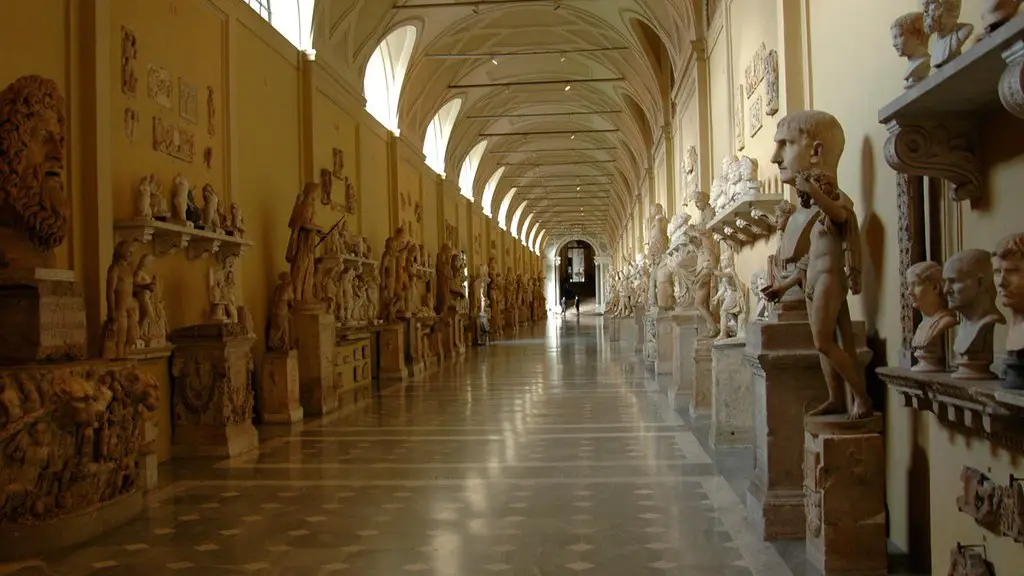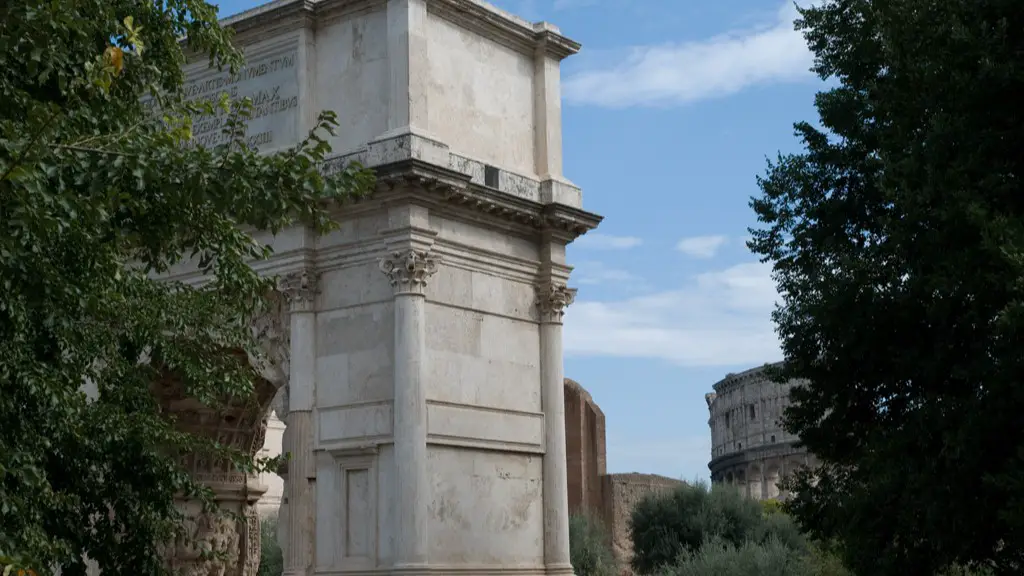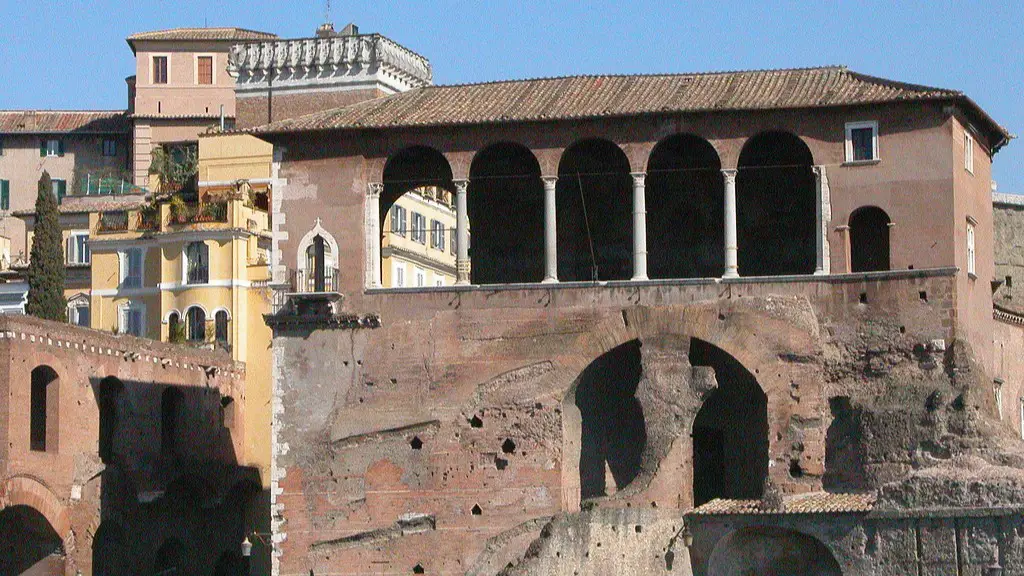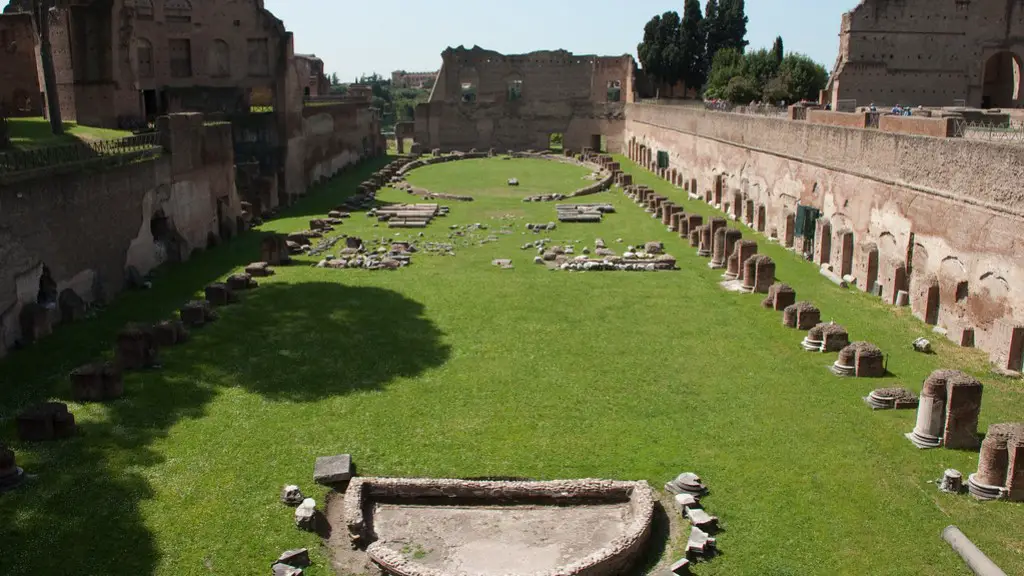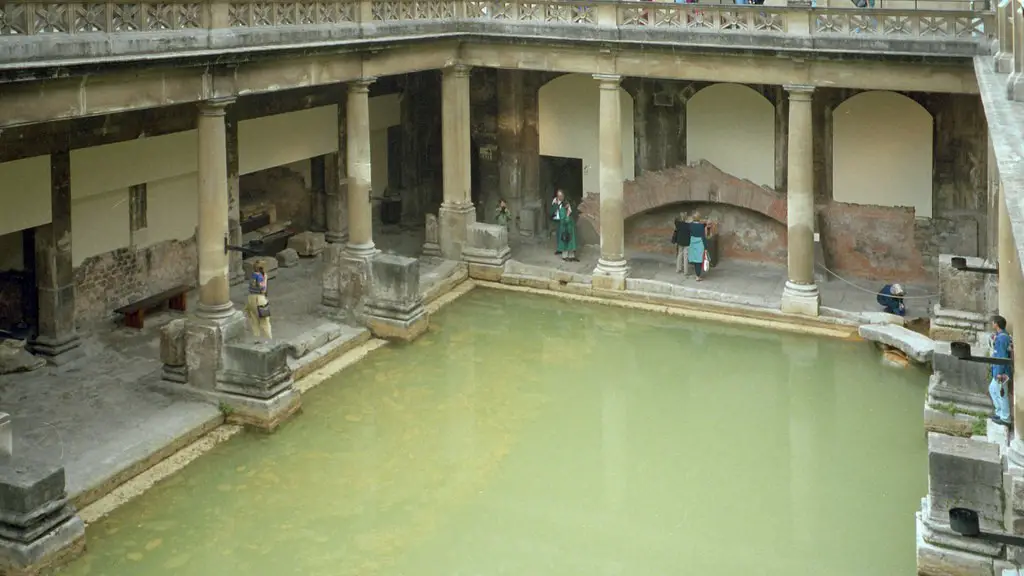Taxes were an important part of Ancient Rome’s economy. Taxes were collected from its citizens, from within the imperial territories and from foreign nations. This article will discuss who collected taxes in Ancient Rome, how those taxes were used, and why they were so important for the Roman Empire.
Taxes in Ancient Rome were collected by a variety of different people. Generally, it was the job of the wealthier classes of citizens to collect the taxes. These citizens would be selected by officials in the Imperial bureaucracy to be sent to various provinces to collect the taxes. In some cases, the Emperor would have governors or couriers accompany them to ensure that the taxes were collected properly. It was also common for the Emperor to appoint high-ranking members of the Senate to oversee the taxation process in each province.
The taxes collected in Ancient Rome were used for a variety of different purposes. Generally, the majority of the money was used to pay for various public services. This included public works such as aqueducts, roads and other public facilities as well as for military operations. It was also common for the money collected through taxation to be used for public rituals, festivals and other religious occasions. In addition, the Emperor traditionally used some of the tax money to reward prominent citizens and to pay for gifts for foreign visitors.
The importance of taxation in Ancient Rome was immense. It provided the government with a steady stream of income, which allowed them to fund various public services and other activities. Furthermore, the money collected through taxation enabled the Emperor to reward loyalty and to ensure the loyalty of subjects. By having a steady influx of money, the Roman Empire was able to expand its power and influence throughout the world.
Taxes in Ancient Rome were collected from several sources. Citizens were required to pay taxes, as were foreign nations that were under Roman control. In addition, taxes were collected from businesses, from land that was owned by citizens, from temples, from slaves, and from other sources. It was also common for the Emperor to impose special taxes, such as trade tariffs, for particular activities.
Taxes played an important role in Ancient Rome. They provided the government with a steady stream of money, which allowed them to fund various public services and activities. In addition, taxation enabled the Roman Empire to expand its power and influence throughout the world. As such, taxes were an essential part of life in Ancient Rome.
Sources Of Taxes In Ancient Rome
Taxes in Ancient Rome were collected from various sources, including citizens, businesses, land, temples, slaves and other sources. Citizens of Rome were required to pay a range of different taxes, such as land taxes, personal taxes and sales taxes, while businesses had to pay taxes on any goods that were exchanged or sold. In addition, taxes were collected from land owned by citizens, from temples, from slaves and from other sources. It was also common for the Emperor to impose special taxes, such as trade tariffs, for particular activities.
Taxes collected from citizens in Ancient Rome were used for a variety of different purposes. Generally, the majority of the money was used to pay for public services and other activities. This included public works such as aqueducts, roads and other public facilities as well as for military operations and religious ceremonies. In addition, the money collected through taxation enabled the Roman Empire to expand its power and influence throughout the world. Furthermore, the Emperor traditionally used some of the tax money to reward prominent citizens and to pay for gifts for foreign visitors.
Impact Of Taxes In Ancient Rome
Taxes played an important role in Ancient Rome. They provided the government with a steady stream of income, which allowed them to fund various public services and other activities. In addition, taxation enabled the Roman Empire to expand its power and influence throughout the world.It was also common for the Emperor to use some of the money collected through taxation to reward loyalty and to ensure the loyalty of subjects
The importance of taxation in Ancient Rome can be seen in its ability to generate income for the state, allowing it to pay for public services, military campaigns and other activities. Furthermore, taxation enabled the government to reward loyalty and to ensure the loyalty of its citizens. By having a steady influx of money, the Roman Empire was able to expand its power and influence throughout the world.
Taxes also provided an opportunity for the government to regulate the economy. By monitoring and controlling taxes, the government was able to influence the flow of resources, the prices of goods and the profits made by businesses. This allowed the Roman Empire to ensure that the economy was stable and prosperous, which ultimately allowed it to maintain its dominance over its enemies.
Collection Of Taxes In Ancient Rome
Generally, it was the job of the wealthier classes of citizens to collect the taxes in Ancient Rome. These citizens would be selected by officials in the Imperial bureaucracy to be sent to various provinces to collect the taxes. In some cases, the Emperor would have governors or couriers accompany them to ensure that the taxes were collected properly. It was also common for the Emperor to appoint high-ranking members of the Senate to oversee the taxation process in each province. Furthermore, citizens were expected to pay the taxes in full and on time, or face the consequences of not doing so.
Tax resistance and evasion were also quite common in Ancient Rome. Citizens may have decided to resist taxation for various reasons. This could include a lack of enjoyment of paying taxes and a feeling that the money was being used to further the aggrandizement of the Emperor or the powerful elite, as well as a perception that the amount of taxation was unfair. In some cases, citizens may have even resorted to illegal activities to evade their tax liabilities.
Taxes were an important part of Ancient Rome’s economy, providing the government with a steady stream of income, which allowed them to fund various public services and other activities. The taxes were collected by a variety of different people, including the wealthier classes of citizens, officials in the Imperial bureaucracy, Governors or couriers, and high-ranking members of the Senate. Tax resistance and evasion were also quite common in Ancient Rome, as citizens may have disagreed with how the taxes were used or felt that the taxation rate was unfair.
Manipulation Of The Taxation System In Ancient Rome
The taxation system in Ancient Rome was also subject to manipulation by powerful elites. Wealthy citizens, who often held positions of power in the Imperial bureaucracy, used their influence to ensure that their taxes were reduced. In addition, it was common for the Emperor to grant certain exemptions or reductions to powerful citizens in order to ensure their loyalty. This practice of manipulating the taxation system enabled the wealthy elite to maintain their wealth and power while at the same time reducing the amount of taxes they had to pay.
The manipulation of the taxation system also had a negative effect on the government. This included a lack of revenue due to reductions in taxes, as well as a reduced ability to fund public services and activities. Furthermore, the practice of manipulating the taxation system was seen as unfair and unjust by many citizens, who were often required to pay more taxes in order to make up for the lack of revenue from those who were granted exemptions or reductions. This ultimately led to resentment among ordinary citizens and contributed to a climate of discontent.
The taxation system in Ancient Rome was also subject to corruption. It was common for public officials to accept bribes in exchange for granting special exemptions or reductions in taxation. This further enabled the wealthy elite to avoid paying their fair share of taxes while at the same time reducing the government’s ability to generate revenue. Furthermore, this practice of corruption undermined trust in the government and its institutions, leading to a general feeling of discontent among citizens.
Reform Of The Taxation System In Ancient Rome
The taxation system in Ancient Rome was reformed several times throughout its history. Generally, these reforms sought to reduce the amount of taxes paid by citizens, as well as to address issues of corruption and manipulation of the taxation system by the wealthy elite. This included the introduction of a flat-rate tax for all citizens, as well as reforms that sought to limit the use of exemptions and reductions in taxation.
The reforms of the taxation system in Ancient Rome were generally successful in addressing the issues of corruption and manipulation. However, they failed to address the underlying problem of citizens having to pay high taxes in order to make up for the reductions granted to the wealthy elite. Furthermore, the reforms did not enable the government to generate enough revenue to be able to fund public services and other activities.
In conclusion, taxes were an important part of Ancient Rome’s economy. They provided the government with a steady stream of income, which allowed them to fund various public services and other activities. In addition, taxation enabled the Roman Empire to expand its power and influence throughout the world. Taxes were collected by a variety of different people and they were used for a variety of different purposes. The taxation system in Ancient Rome was subject to manipulation and corruption, and various reforms were introduced in an attempt to address these problems. Despite these reforms, the taxation system in Ancient Rome ultimately failed to address the underlying problem of citizens having to pay high taxes in order to make up for the reductions granted to the wealthy elite.
